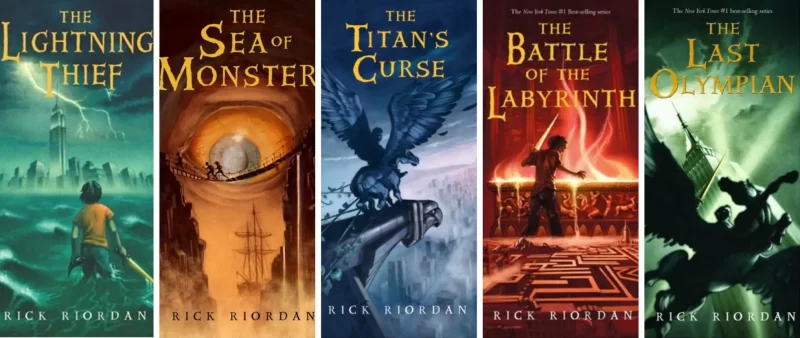I might be cheating just a little bit on this one since this is the premise of my personal essay and because I’m gonna be focussing more on the movie rather than the book. I have read the book and thoroughly enjoyed it, but for the sake of what I am analyzing about this story, the movie is more compatible. Call Me By Your Name, written by André Aciman in 2007 and later adapted into a film in 2017, is framed and taken as a budding romance with a tragic ending. I disagree. The movie is truly remarkable, the incredible visuals, overwhelming aesthetic beauty, and impressive cast make it a very enjoyable watch. Don’t think I’m bashing the movie itself – I’m bashing the way people try to say this is a beautiful, sad love story. When I watch this movie, I see a coming-of-age story involving first loves and the realization of being taken advantage of.
ChatGPT would summarize the movie as,
Call Me by Your Name is a 2017 romantic drama set in northern Italy during the summer of 1983, where 17-year-old Elio Perlman develops a deep and passionate relationship with Oliver, a 24-year-old American graduate student staying with his family. As their bond grows from tentative friendship into a secret romance, the film explores themes of first love, desire, and emotional awakening. Their intense connection is both transformative and fleeting, ending with Oliver’s departure and news of his engagement, leaving Elio to navigate the bittersweet pain of lost love and personal growth.
The first thing that strikes a lot of people is the age difference. Sure, they may not be wildly far apart in age, but there is still a clear and major difference in maturity. At seventeen years old, you have a marginally larger amount of self-discovery and maturing to do compared to when you are twenty-four. When I was writing my essay, I even asked my parents about this; they both confirmed that the way they viewed themselves, other people, and the world as a whole was drastically different at these ages, which leaves Elio in a more vulnerable position than he would be otherwise. The morality of their relationship is questioned often, however I’ve noticed people that watch this film are quick to brush past it and continue to romanticize the dynamic Elio and Oliver have.
Besides just the morally gray age difference, there are other issues that I see with calling this a true love story. Oliver arrives to stay with the Perlman’s for six weeks doing academic research and Elio isn’t too fond of him at first, thinking he is arrogant. He quickly becomes attached however, and without reading between the lines a bit while watching the film, it’s easy to think that Elio was the initiator and Oliver simply reciprocated. Throughout the first half of the movie, Oliver leaves subtle hints of his attraction to Elio before actually initiating anything intimate. Elio is oblivious for the most part but when Oliver is finally direct about it, Elio immediately reciprocates before Oliver tells him to basically back off. It’s a weird almost cat and mouse game in my opinion, and it feels as though Oliver wants Elio to feel and believe the latter was the one coming on to him and just vying for his attention. Oliver eventually allows himself to “give in” and they begin having an intimate relationship. They are inseparable for the rest of Oliver’s stay and Elio dreads when he has to leave while Oliver doesn’t ever really seem too shaken by it.
That leads me to my next point; their emotional investments to each other were completely unequal. Elio is infatuated with Oliver and feels their connection very deeply; Oliver is fully aware of this yet still seems to just be enjoying a summer fling with a naive teenager. Oliver pulls him around, never setting boundaries or talking about their inevitable separation, he just allows Elio to grow more and more attached to him. When the time ultimately comes, Elio is completely crushed. The last few scenes take place mere months later during Christmas time when Elio receives a call from Oliver. He is still infatuated and is excited to hear from him–to soon be distraught at the news that Oliver is getting married in the spring with a woman he has been on and off with for three years. This is honestly what solidifies my take on this film. Oliver isn’t even shown on screen, and while he tells Elio “I remember everything” he is overall indifferent while Elio is heavily emotionally damaged. Sure, Oliver may have had real feelings for Elio but felt the pressure of being a closeted man in the 1980s living in New England. This adds another layer of complexity and ambiguity, however to me it still doesn’t change the fact that he was aware that Elio was completely taken by him and fed into his infatuation while never feeling it as deeply.
In the grand scheme of things, Elio gave more, he felt more, and he lost more. Oliver benefitted sexually and emotionally from Elio’s naivety and vulnerability without regarding how affected Elio would be, seeing all of it as a fun summer fling. Their unequal emotional investments and unbalanced power dynamics have their relationship leaning more towards predatory than passionate. Even with all of this, this film and their relationship is so incredibly romanticized that it seems a majority of viewers completely miss the underlying unhealthy dynamic; that is my issue. This isn’t just a problem regarding this film, the romanticization of imbalances of power or unhealthy relationship is so incredibly prevalent in media and it just leaves a sour taste in my mouth. Another prime example is the media’s obsession with “dark romance” tropes in books and movies, which are typically glaringly morally questionable or just straight up abusive and weird.
In short, I don’t think this is a true romance. I see it as a relationship that was never equal from the start, with a slightly older, charismatic man who in every aspect should have known better, benefitting from a teenage boy’s naivety and leaving him completely heartbroken. While I do truly love and appreciate this film, I heavily dislike the way that it is framed by the majority of the audience.




3 Comments
Add Yours →The way you articulate your take on this movie is intriguing, and I think it would be cool to see it, now with this perspective on it. I will have to give this a watch!
This is a really good reflection and your ability to unpack the distinction of Call Me By Your Name is impressive, and you bring up a lot of important points that are often missed in popular discussions of the film. It’s refreshing to see someone engage with both the beauty and the problematic points in a story, rather than accepting it at surface level just because it’s aesthetically stunning or emotionally charged.
This is an interesting take on what it means to “be” a love story. I agree 100% that the romanticization of power imbalances gets old real fast, but I’m not sure that it being an unhealthy relationship discounts it from being a love story. In fact, in queer media particularly, there’s a lot of popular “doomed” or otherwise messy relationship portrayals. Just food for thought.